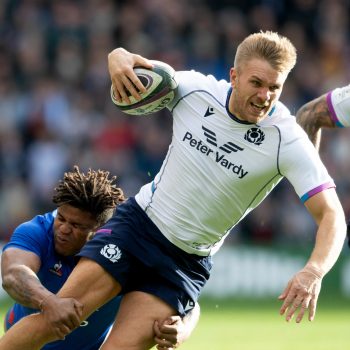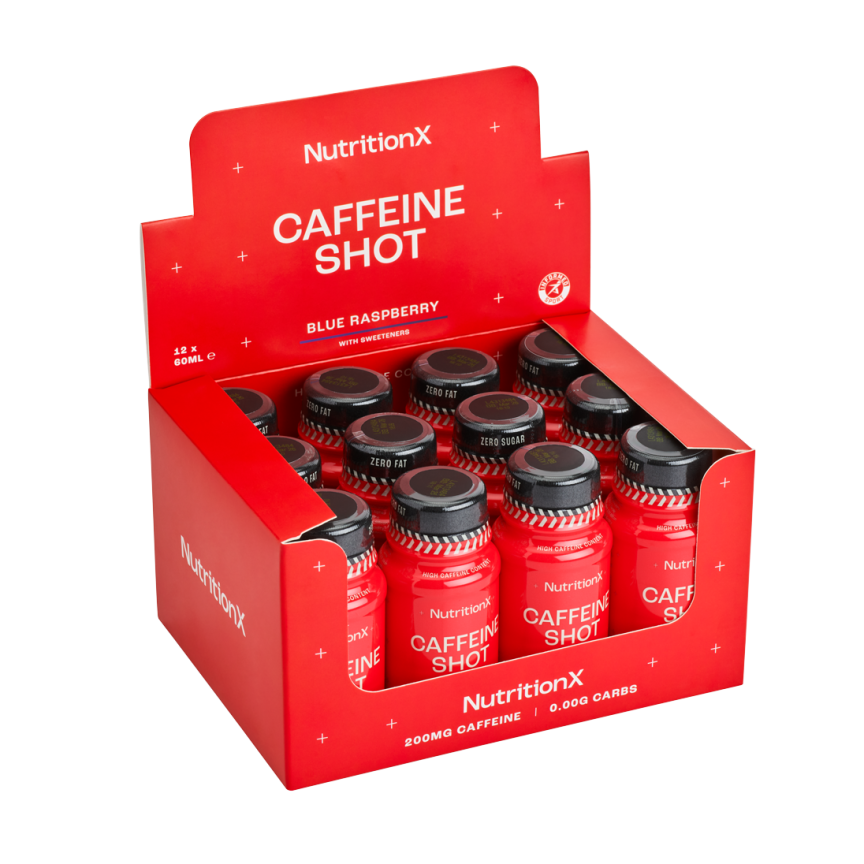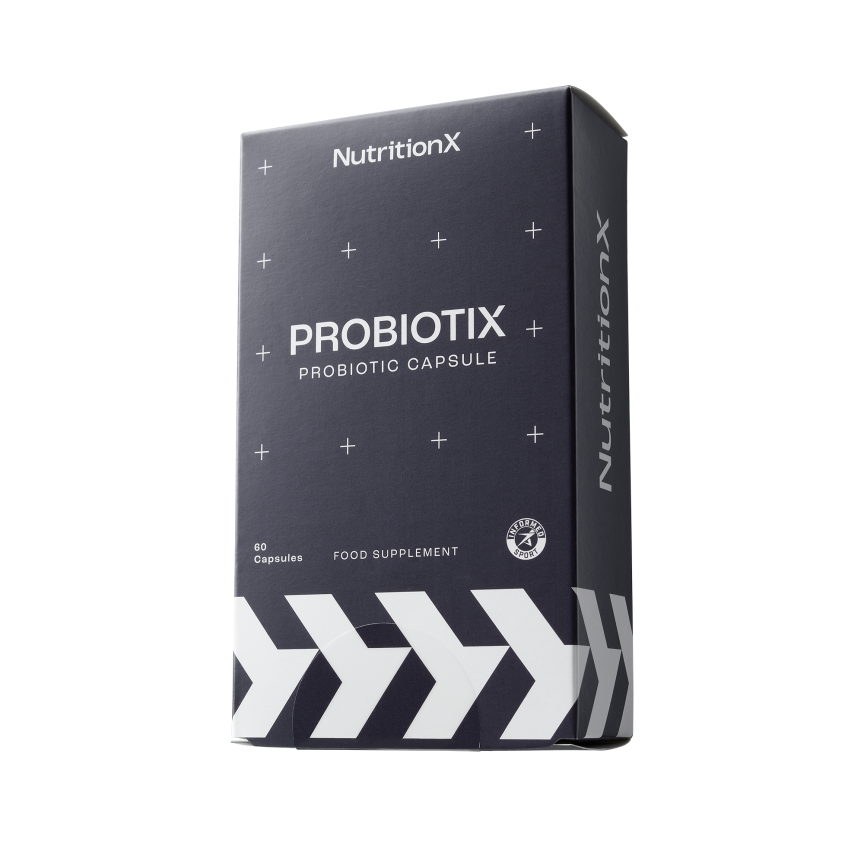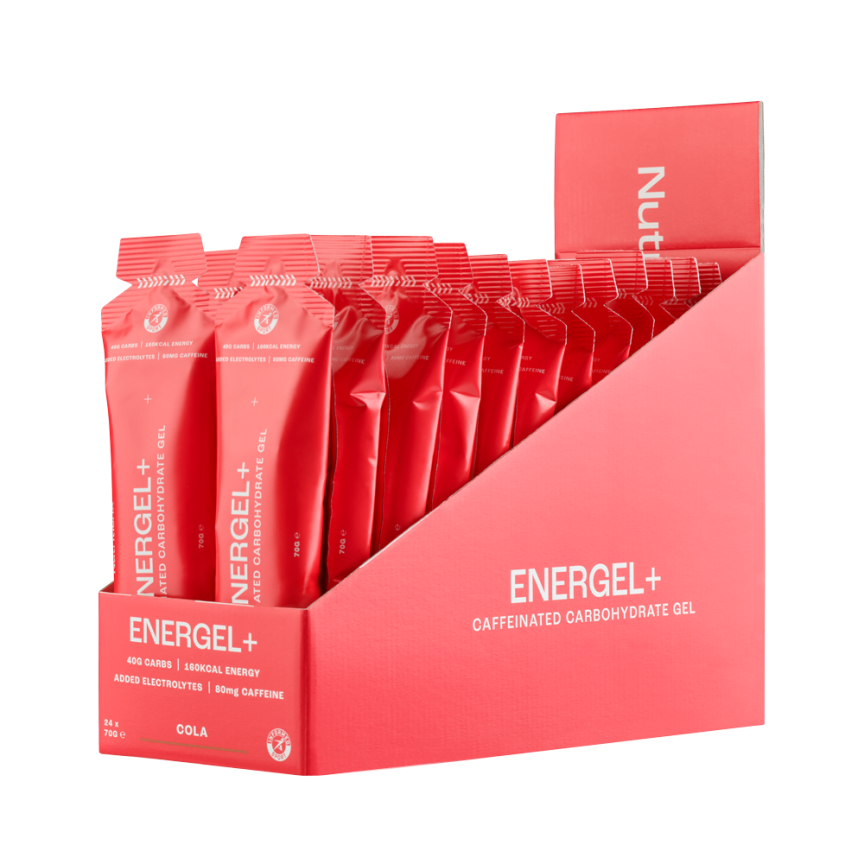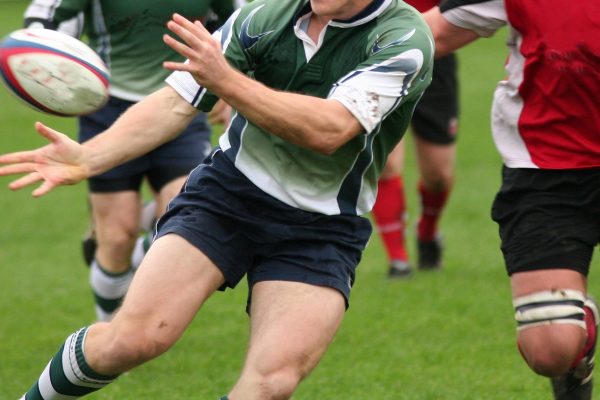Ever wondered how a nation’s top rugby union players approach fuelling their bodies for one of the most hotly-anticipated competitions on the world rugby calendar… the mighty Guinness Six Nations?
Well, wonder no more. We’ve caught up with Tom Coughlin, Nutritionist to the Scottish Men's team to see how they integrate nutrition to ensure they’re conditioned and performing at their peak from the moment they hit the pitch.
Specifically, we’ve asked Scotland Rugby to reveal what a typical training week looks like ahead of a big game.
A Typical Training Week
“Within a classic competition test week like the Guinness Six Nations, each day has a specific focus in the lead up to a match at the weekend. Due to the workloads experienced acutely and chronically during a competition phase, fuelling throughout this period is crucial. From a nutrition perspective, typically a full day will consist of the three main meals (breakfast, lunch, and dinner) with a mid-morning and afternoon refuel window and finally a specific pre-bed snack. We also have a 24-hr snack station available in our team room so the players can top-up if required. This snack station is essential for our young players or those that need to maintain their weight throughout camp. We also have our Wellness Station set up in the team room where players have access to take their designated daily supplements like Nutrition X’s Multivitamins, Omega-3, ProbiotiX and Vitamin D3. There may be some changes to meals on game day depending on kick-off times, but we try to keep the routine as consistent as possible for the players."
Monday
Normally, on Monday at the start of the week, there will be a focus on recovery and learning. Breakfast will highlight foods that are high in nutrients which will aid the recovery process such as antioxidants, polyphenols and omega-3. We work with the chefs to put on daily specials which will support this theme whilst keeping things varied and exciting for the players. Following breakfast, the backs and forwards will tend to work in their unit groups and go through a series of short sessions. These sessions will cover physical, tactical and technical elements to help our learning and set us up for the week ahead. The team will then come together for a combined walkthrough and meeting to provide clarity on the shape that will be played at the upcoming game. Lunch follows general principles of midday fuelling with high-quality sources of leaner proteins, starchy carbohydrates and lots of varied fruit and vegetables, a big whole-food focus. In the afternoon, there will be a physical preparation window followed by a rugby session, additional meetings then recovery followed by dinner.
TUESDAY
Tuesday will be the most intense day in camp with the players completing strength sessions followed immediately by close quarter skills and units’ sessions. There’s a high energy demand on the players during this morning with back-to-back sessions, so fuelling beforehand and refuelling efficiently midmorning are critical. Breakfast will be more carbohydrate focussed and we’ll have additional refuel snacks available throughout the morning to support the intensity of training. In my role as Nutritionist, it is essential that I’m ensuring all players have the opportunity and a clear strategy to refuel. Nutrition X’s Big Whey and MRM, alongside a range of food-based options, are an essential feature of this training period.
The players will then have a team meeting followed by lunch which again will have a higher calorie focus than our Monday menus. We’d start to see the implementation of compound dishes, pastas and a salad bar with higher carbohydrate items available to support the theme of the day. In the afternoon, there will be another physical preparation window into an intense unit’s session followed by rugby.
After the biggest day of the week, recovery is of utmost importance. Chris Leck, one of our excellent Strength & Conditioning coaches, leads in this area and programmes recovery individually for each of our players based on their training demands, physical goals and preferences. Depending on the weekly schedule the players may depart home, in which case we provide food to take away with them to support their recovery. Alternatively, if we’re staying in the hotel, we’ll have an acute food-based recovery strategy post-training, with an evening meal later that night. After a hard day training there is more flexibility in the menus, and this serves as a great opportunity for the players to relax and enjoy something a bit different. It’s also a great opportunity to connect with some of the amazing products and suppliers available to us in Scotland.
At the height of the pandemic this was a crucial aspect when our movements were heavily restricted but has now become the most anticipated meals of the week. I work with the players and our team manager to build ideas and keep a variation; we’ve had everything from BBQs showcasing some amazing cuts of meat, to fresh seafood platters and even sushi skills and food trucks. During an extended period where the players and management are away from home and working extremely hard, it’s essential to try and keep things varied and provide opportunities for everyone to switch off. Food is a great tool to support this need and goes to show that nutrition isn’t just about performance, it’s so much more than that.
Wednesday
Wednesday will be a regeneration day, with opportunity for players and management to catch up with each other and their families and continue with their recovery strategies. If we’re staying in the hotel, we’ll help facilitate this by bringing in local coffee shops to do a pop-up café for us at the team hotel. It may seem immaterial but having this available at the team hotel makes it easier for players to follow their recovery plans whilst providing opportunities for players to bond, have conversations with each other and spend some time with their families.
Thursday
Thursday we’re back into training with a front-loaded training day in the morning and fuelling again has a huge emphasis. Players will go from a team meeting into a power session in the gym, then immediately into close quarter skills with our defence coach Steve Tandy. We have an integrated approach, where our rugby coaches and strength and conditioning coaches work together in the gym and on the field as one. After close quarter skills, the players will have a quick refuel window before heading out onto the pitch into their individual units’ sessions and combined rugby session.
Once the morning is complete, much of our physical work for the week is done. Recovery again becomes our primary focus. Lunch and dinner are focussed around replenishing the energy that has been utilised earlier in the day, plus shifting the nutrient intake towards more anti-inflammatory and antioxidative foods.
Friday
Friday is our Team run day, and critical in our match-fuelling process. We keep the menus exactly the same from breakfast on Team run through to pre-match meal on game day. This keeps the players’ routine consistent and means they can follow their own individual routine no matter if we’re playing home or away, anywhere in the world. Consistency is key during the preparation for the match. I design each meal and the food environment to be carbohydrate-focussed which ensures the players will be sufficiently fuelling themselves with the right types, and quantity of food.
Again, we’ll have our typical 3 main meals, plus 3 programmed snacks, however with the huge demands of a Test match, I also work with players individually to look at enhancing their match fuelling process with the potential use of targeted supplementation strategies. We, (myself and the player), work together to ensure they have the education and ownership of any plan, so we can maximise their readiness ahead of the game. These strategies usually start immediately post Team run.
Putting a greater emphasis on nutrition and fuelling on Team run day takes a lot of pressure off eating on match day. On match day, performing on the pitch is top priority. If players have followed a solid routine the day before, they’ll have everything they need to perform.
Game Day
The biggest factor to consider on game day is the kick-off time. I then work back from this to decide what time meals and snacks should be available for the players. For an early kick-off (e.g. 14:00) we may just have a singular breakfast window running from 06:30, with a few pre-match meal staples like pastas being added to the buffet later on towards 10:00. This allows players to follow what they feel comfortable with, some like to eat twice on game day, so would wake up early for a “breakfast” meal then return later on for a specific “pre-match feed”. Others may prioritise sleep and only eat once before an early kick-off. If it’s a later kick-off (e.g. 20:00), there may be up to 3 meals before the match: a breakfast, lunch and pre-match meal. Due to the kick-off time dictating the schedule leading up to the match, there is some flexibility in the schedule. However, following a solid nutrition plan the day before the match allows this to be easily dealt with.
We aim to take pressure off the players as we get closer to the game, and this is where having strategies agreed ahead of the game allow myself and the team to have the changing room prepared prior to players arriving at the stadium. Each player has their individual supplementation strategy laid out for them at their changing room place, with adequate snacks, fluids and additional supplements on hand. Nutrition X’s Xplode Shots, Energy Gels and Caffeine Gels are all utilised by individual players either pre-match or at half-time to help them reach their physical and mental peak for the match.
Post-match we’ll adapt each players recovery strategy based on the types of game they have experienced and the demands their bodies have been put under. Carlos Ramirez, our Sports Scientist, provides vital information to Chris Leck and myself to dictate what recovery modalities and nutrition strategies we provide to the players over the next 36hrs following a match. All with the goal of coming into the next weeks’ training as recovered as possible and ready to perform.



